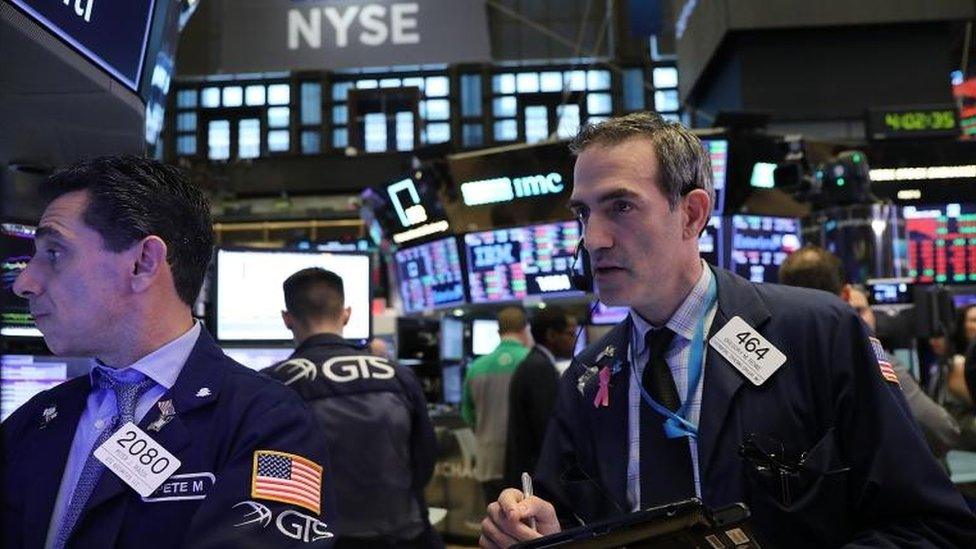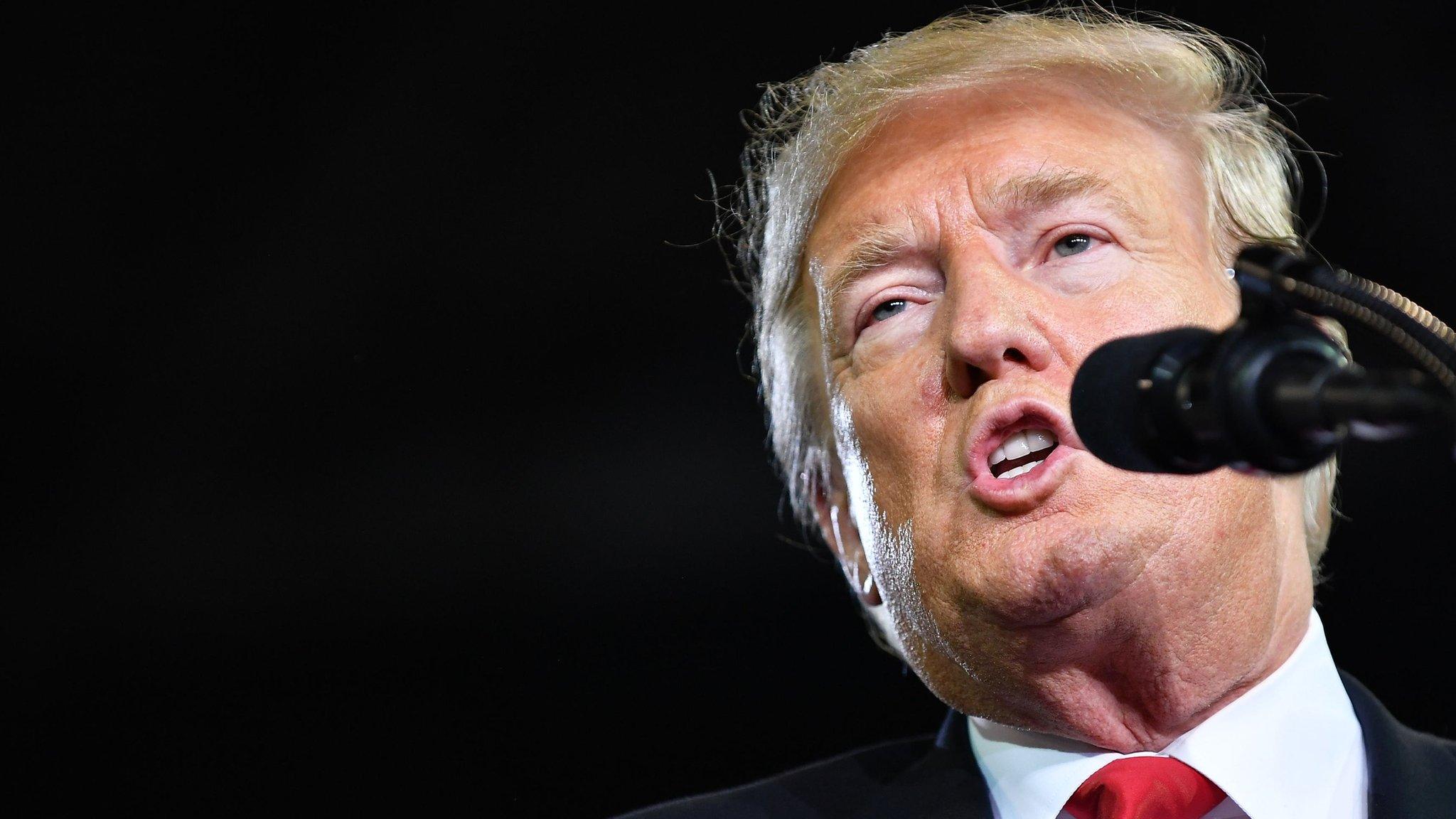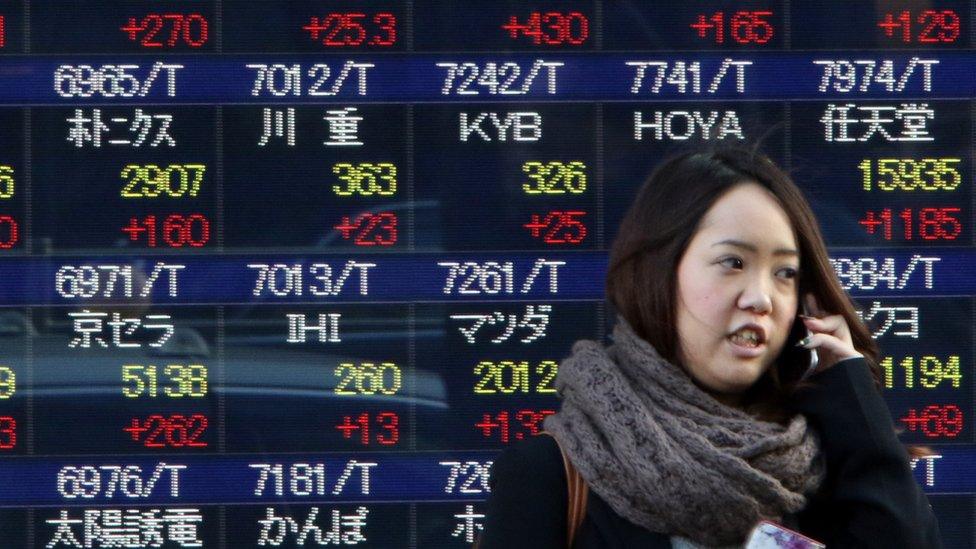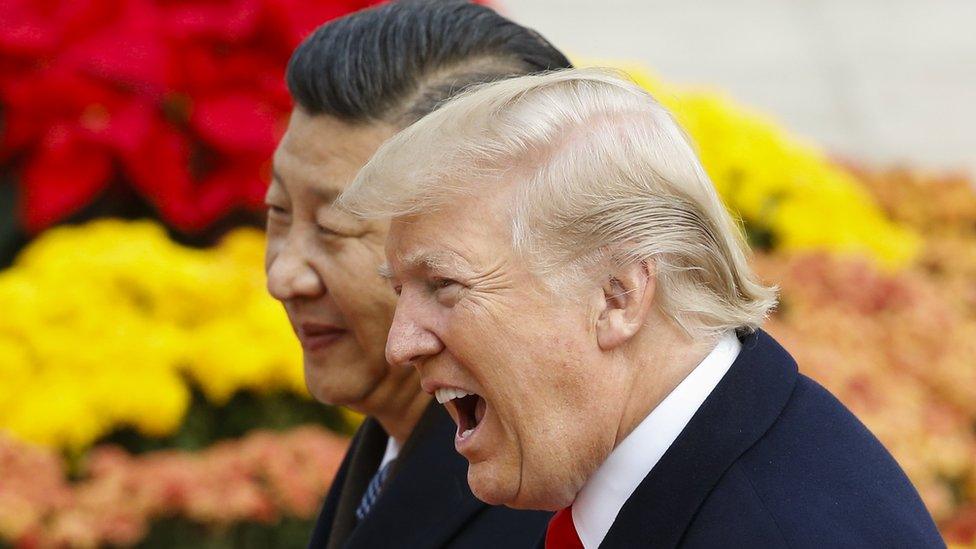US share markets sink as sell-off continues
- Published
- comments

A sell-off in US stock markets has continued with a second day of steep declines.
Despite early gains, losses on the indexes accelerated later in the day, extending earlier drops in Europe and Asia.
The Dow Jones and S&P 500 both closed down more than 2%, while the Nasdaq slid about 1.25%
The falls came amid concerns about rising interest rates and slowing global growth.
The White House dismissed the falls as a much-needed correction, but then US President Donald Trump stoked fears about the impact of recent interest rate rises with an attack on the Federal Reserve.
He called the Fed "out of control", adding that he was "disappointed" by its policies.
Energy firms led the slump, as oil prices posted steep declines.
Companies in the financial and property sectors - industries sensitive to higher rates and exposed to risk from Hurricane Michael - also took a beating.
Earlier in London, the FTSE 100 share index tumbled 1.9% to close at 7,006 points.
France's CAC 40 slid 1.9% to 5,106 points, while Germany's DAX fell 1.5% to 11,539 points.
In Asian trading, the Hang Seng index in Hong Kong had plunged to a 19-month low, following Wednesday's declines in the US.
Japan's Nikkei 225 dropped 3.9% - its steepest daily drop since March. In China, the Shanghai Composite collapsed 5.2% to its lowest level since 2014.
What's driving the fall?
The declines this week follow months of better-than-expected performance in US markets, which bounced back after turmoil earlier in the year to set new records over the summer.
But the Federal Reserve is raising interest rates, with the latest hike coming last month, and more increases likely to come.
The concerns about higher rates have been compounded by a trade war between China and the US - which the IMF has warned could harm growth.
With hundreds of companies due to report earnings forecasts in coming weeks, analysts attributed the sell-off in part to investors worried that those two factors will increase business costs and hurt corporate profits.

Analysis
Kim Gittleson, New York business correspondent, BBC News
For traders who had got used to the seemingly inevitable march of US stock markets ever higher, Wednesday was a bit of a shock.
Here's just one reason why: the S&P 500 didn't record a single move up or down of more than 1% during the third quarter of 2018. That hasn't happened since 1963, according to LPL Financial.
So what led investors to head for the exit?
As ever, it's almost impossible to pinpoint one reason for the sell-off.
The consensus seems to be a combination of rising interest rates, tariffs and inflation led investors to worry that fourth-quarter earnings season, which begins on Friday, won't be as record-breaking as prior quarters.
But when it comes to one of those concerns - inflation - investors got to breathe a sigh of relief on Thursday.
Just before US markets opened, the September reading of the consumer price index showed that prices rose by just 0.1% during the month, below expectations.
After the release, the mood on the floor of the New York Stock Exchange almost instantly lightened, as the lower-than-expected reading tempered concerns that the US Federal Reserve will be forced to increase interest rates at a faster pace than expected.
The question is if calm will once more prevail on Wall Street - or if Wednesday's dip was a harbinger of a turbulent earnings season to come.

The Dow and S&P 500 have now fallen more than 5% below earlier peaks, while the Nasdaq is off about 10%.
The White House brushed off the declines, arguing that the steep rise in the markets earlier this summer made it ripe for correction.
But US President Donald Trump - who often boasts about US stock market performance-also renewed his attacks on the Federal Reserve for its decision to raise interest rates.
He said higher rates - which make borrowing more expensive - were "far too stringent", adding: "I think what the Fed is doing is wrong."
Interest rates in the US remain relatively low by historic standards.
Michael Hewson of CMC Markets said it was "too simplistic to blame the Federal Reserve" for market turmoil.
"There are a number of factors," he told the BBC. "Obviously, concerns about slowing growth - the IMF downgraded its global growth forecast for the global economy, citing emerging market concerns."
- Published11 October 2018

- Published11 October 2018

- Published11 October 2018

- Published18 September 2018

- Published10 October 2018